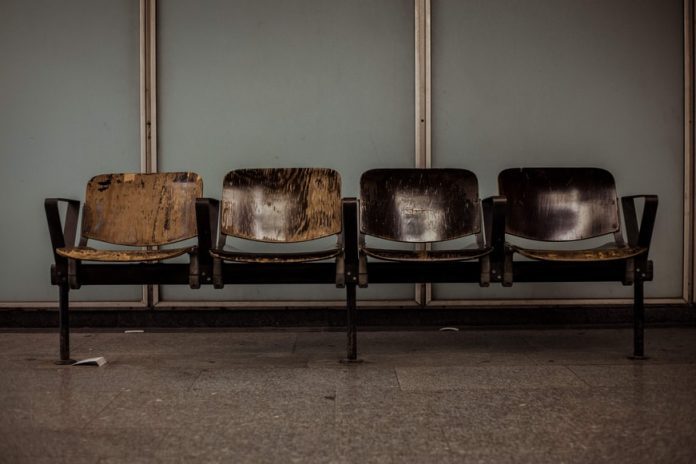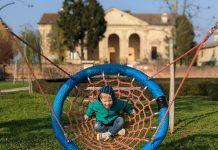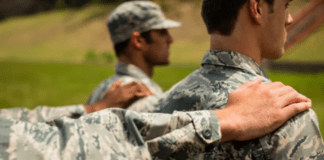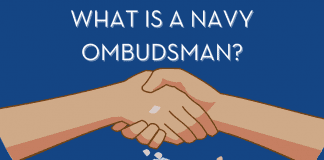It formally began on a cold hard chair in an impersonal room, as so many of these lessons do. I’d had smaller assignments for this particular topic before, but this was where I began to take the advanced course.
No, it wasn’t a math class or even the driver’s permit exam. I was learning the all-important lesson of “How To Wait (Army Version).”
I’d made my way through the chapters called “He’s at NTC and Can’t Call Now” and “Where is the Mail”, and since we dated long-distance, I thought I had things pretty well down. What I didn’t realize was how carefully and craftily this skillset would be tested.
The hard chair was in a DEERS/ID card office. We had just gotten married and were finally able to live together, after waiting for gunnery and for him to get leave to drive with me from Arizona to Kansas. The ID card procedure was to sign in, wait, have paperwork checked, wait, then have cards made. There might have been one more “wait” involved. Having just gotten my Social Security card changed to my married name and dealt with that office, I thought this wasn’t too bad.
Then I tried to make a doctor appointment. This was it, the hardest lesson.
This one laid the groundwork for field exercises, deployments, promotions, PCS orders…all of it. Everything I have waited for in my life, especially Army stuff, was managed well because of this lesson.
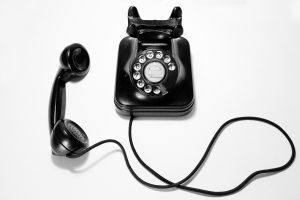
At Fort Riley, there was only one appointment line. Getting an appointment meant being put immediately on hold, then waiting. There was only one way to get an appointment, there were no walk-ins unless you needed the ER, and the idea of “urgent care” was most definitely not yet available. So we had to wait.
The hold interlude was pretty specific and not particularly “musical”. Every 15-20 seconds or so, it would be loudly interrupted by service announcements and reminders to be patient. In my memory, it doubles as the “bad guys are coming” soundtrack for some B-movie, but probably I am exaggerating.
Maybe.
We did not have a cordless phone. Our phone was on a tall counter in the kitchen, which was the only place in our home with a phone outlet.
Being on hold like this may be a universal experience, but these wait times were excruciatingly long.
Sometimes it could take over an hour just to talk to someone. Then one could be told to call back the next day. Sometimes, maddeningly, the line would cut out and the system would hang up on me. Then I would begin again, from the back of the queue. There was a short window of availability in the morning, and if you missed that window, all the slots would be taken.
What, exactly, did I learn from this?
I learned to be prepared. I would have a few things close at hand that I could clean or do while on hold.
I learned to make myself as comfortable as possible for waiting. For me, this meant having a long cord for the phone and setting it up so I could see the TV or at least sit down.
I learned to accept and just be still with the frustration and difficulty of waiting. This was also my first taste of mindfulness, not that anyone called it that back then.
I learned to be nice to the human beings who were trying to help me. They were not the ones who made the system. They had to work in it, just like I had to use it.
I asked around to find out where other spouses got their lessons in waiting in patience, and it opened my eyes to some other thoughts.
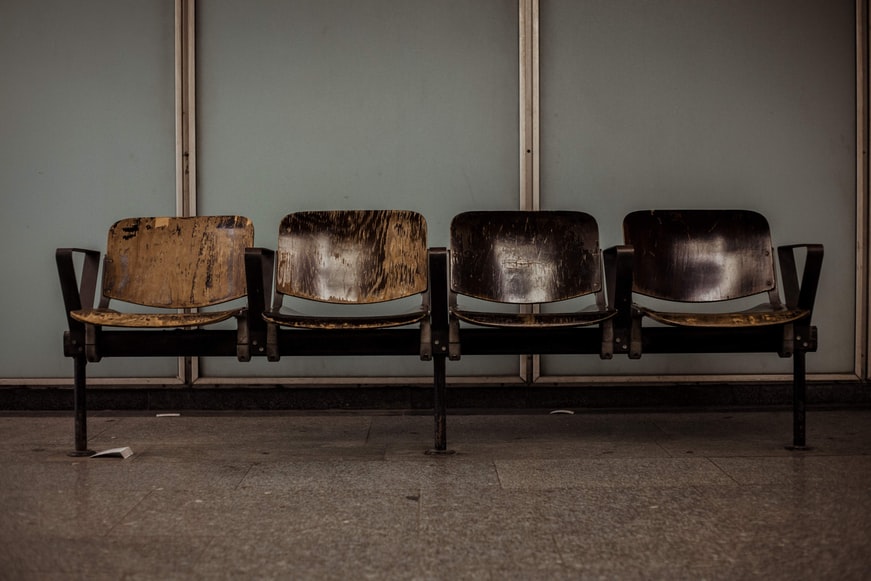 “Hurry Up and Wait” is, of course, a classic installment in this lesson plan. See also: “I’m Not Deployed Until I Call You From There.” So many times, deployments get pushed back, changed, or adjusted. Planes get grounded; buses get delayed. Getting word that a deployment is happening on a particular day? Don’t count on your servicemember actually being gone that day!
“Hurry Up and Wait” is, of course, a classic installment in this lesson plan. See also: “I’m Not Deployed Until I Call You From There.” So many times, deployments get pushed back, changed, or adjusted. Planes get grounded; buses get delayed. Getting word that a deployment is happening on a particular day? Don’t count on your servicemember actually being gone that day!
“Final Formation Isn’t Final”, or the “Your Guess Is As Good As Mine When I Will Get Home Tonight” could be a really hard lesson for some. If a spouse or military person is used to dinner being at a particular time each night, it may be difficult to never have a set routine.
Just when we think we are used to a particular schedule or way of doing things, things will change. Half our heart will be overseas, and finding routine when dealing with huge time differences can be really hard, too. From the time we were dating, My G would say, “I’ll see you when I see you (and not before then),” but saying this and accepting and living it are not the same thing. It took us time to get there.
There are, of course, many other lessons we get along the way. They pop up in unexpected places like the gym, our sock drawers, while parenting, or during major birthdays. But this one? This is lifelong.
I had a refresher quiz on my Army lesson that lasted the longest recently.
There were no appointments within 60 miles or within 8 days to get a COVID test. I didn’t have symptoms but I had an exposure. I needed to know whether to cancel in-person commitments. Luckily, a pop-up testing center was nearby for drive-up testing.

The young man at the entrance told me it could be a 3-4 hour wait, but maybe if I came back later, it might not be so bad. So, I came back. I had a snack, a drink, a book, and some things I wanted to work on for my job. I had email, Slack, and a notebook and pen.
When I pulled back into the lot, the same young man told me that the wait was still about 3 hours long, and the overflow cars were waiting across the street. “No problem,” I told him. I smiled broadly and pointed to the passenger seat, piled high with work.


